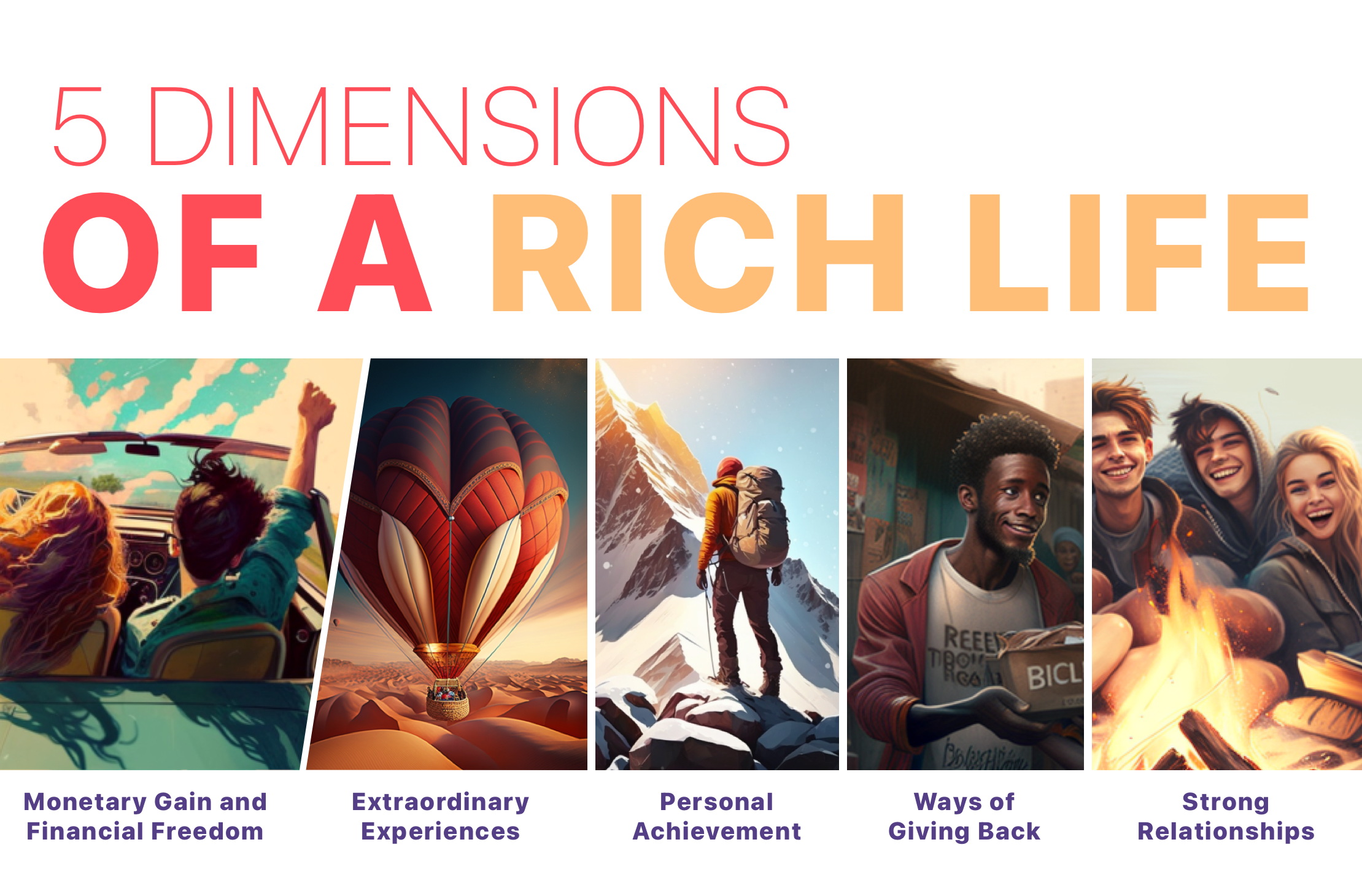

BRANDON FALTER
Author
HEALTH
October 18, 2022
IF YOU WANT SUCCESS, PURSUE HAPPINESS
However, this argument is flawed. Many a depressed, lonely workaholic will tell you that striving for success comes with costs that can lower happiness.
This does not imply that you must choose between happiness and success. You can obtain both. However, you must reverse the order of operations: Start by working on your happiness, which will increase your success, rather than attempting success first and hoping it brings happiness.
Numerous workforce studies have demonstrated a generally positive correlation between success and happiness. For instance, from 1998 to 2005, Fortune magazine's "100 Best Companies to Work For" list of companies saw an average stock price increase of 14%, compared to 6% for the market as a whole. In addition, business units with employee-engagement levels in the 99th percentile—that is, employees who reported feeling heard, respected, and intellectually stimulated and who had a best friend at work—perform above the industry average and 73% above the company average, according to Gallup data.
Many people believe that this correlation is the cause—from happiness to success. During my time as an executive, I discovered that many people firmly believe that pay raises, particularly significant ones, will have a substantial and lasting impact on job satisfaction. However, the data tells us a different story: Well-being is only marginally affected by significant wage increases. On a scale of 0 to 10, researchers in 2017 tracked the pay and job satisfaction of nearly 35,000 German workers over several years. The study found that job satisfaction rises by about a quarter of a point in the year before a one hundred percent pay increase. The raise adds another fifth of a digit to that satisfaction boost. As a result, the total growth has decreased to less than a fifth by the fourth year.
To put it another way, let's say your level of job satisfaction is 6 out of 10, which is good but not great. Your salary will rise to approximately 6.5 if your boss doubles it, and then it will fall back to around 6.2. It's possible that this isn't the best way to make you love your job.
That doesn't even consider the impact that higher levels of job success can have on one's overall sense of fulfillment in life. In 2016, psychologists asked 990 full-time professionals with college degrees to compare their careers to those of others. They discovered that people generally valued the status and money that came with relative success. However, they did not entirely achieve happiness through success: It probably reduced life satisfaction indirectly through time constraints, stress, and strained social connections.
However, when researchers look at happiness's effect on success rather than success's impact on happiness, the results are much stronger and more positive. In 2005, researchers looked at hundreds of studies and conducted experiments to prove causality. They concluded that happiness leads to success in many areas of life, such as marriage, friendship, health, income, and performance at work.
One explanation is that being happy makes us more attractive, which is why other people reward us. On the other hand, happiness may increase our productivity. Both are true, according to cutting-edge experimental research. For instance, in 2021, researchers investigated Chinese Livestream web broadcasters, whose primary source of income consists of voluntary viewer tips. They discovered that when they appeared happier, their tips increased immediately. This suggests that the market rewards those who appear happy. British test subjects participated in another experiment with a timed arithmetic task and math test. Subjects who were shown a clip from a comedy movie before the task and test were about 12% more productive than those who weren't, and the funnier the clip was, the more productive they were.
Increasing happiness at work and in life is a better investment than simply trying to improve measures of success, whether you are an employee or an employer.
First and foremost, keep in mind that happiness requires harmony. Overworking will make you unhappy regardless of how much you enjoy your job. Workaholic behaviors, such as perfectionism and work addiction, were found to strongly predict workplace incivility (hostility, privacy invasion, exclusionary behavior, and gossiping) in 414 Iranian bank employees studied by researchers in 2020. The quality of family life was also negatively impacted by workaholic behaviors (as measured by disagreement with statements like "My involvement in work provides me with a sense of success; this, in turn, enables me to become a better family member").
You should prevent yourself from working too much and support those in your family and friends who struggle with it. However, employers should not encourage excessive work, which will likely necessitate effort and attention since research indicates that executives typically underestimate employees' well-being issues.
Happiness at work depends on a sense of purpose and meaning once work quantity is under control. As stated in this column, earning success and service to others are the two most essential components of meaningful work. Serving others necessitates knowledge of the real people who benefit from your work, whereas earned success implies a sense of accomplishment and recognition for a job well done. A lot of research demonstrates the significance of these work aspects. For instance, Gallup has shown that people who give back to their communities and get credit for it self-report significantly less stress and anxiety in their lives than those who don't (either because they don't give back to their communities or because they don't get credit for it).
In contrast, service-oriented jobs typically hold the highest potential for meaning. The Pew Research Center conducted research in 2016 and found that the proportion of employees working in the nonprofit and government sectors—i.e., work that is mainly focused on providing services—than private-sector workers, who claimed that their jobs gave them a sense of identity. In some professions, the connection to service is harder to find than in others, but it can usually be found. For example, A group of academic researchers developed a bank regulation policy. One scholar who was especially enthusiastic about the project told me he always remembered how important his work was because poor people need access to credit at reasonable prices, requiring less bureaucracy.
Try looking a little closer—maybe even in the cubicle next to you—even if you struggle to see who benefits because the people you touch with your work are far away or indirectly affected by it. Helping your coworkers can always positively impact you, and there is clear evidence that doing so can help alleviate negative workplace feelings.
In the end, although happiness and success are linked, the alchemy is mostly one-way—and not the way most people believe. Working toward your success to be happier is, at best, ineffective, and it may backfire and cause you to be unhappy. However, focusing on your happiness increases your chances of obtaining both.
Even if this makes sense, you might still fall back into old patterns of seeking happiness through professional success. Don't worry; it's easy to fall into this way of thinking. I like to reread the short story "A Hunger Artist," which Franz Kafka wrote in 1922, whenever I notice that my hours are increasing to workaholic levels and that my dreams of happiness revolve around achieving something. A man in it works as a traveling carnival act and starves himself in a cage. He is preoccupied with his work and strives for what he refers to as "flawless fasting" as a perfectionist. "If a good-natured man who felt sorry for him ever wanted to explain that his sadness probably came from his fasting... the hunger artist responded with an outburst of rage," Kafka writes. The hunger artist is proud of his success but always depressed.
The act of the hunger artist loses public support over time. He tries fasting for longer than he has ever done before to revive his faltering career. Instead, he sits by himself in his cage and is utterly ignored. The hunger artist ultimately starves to death. The protagonist admits, just before passing away, in a Kafkaesque twist of absurdism, that he had only engaged in his art because he could not find food that he liked.
Of course, I'm not that bad, but you might also have a hunger artist in you. My recommendation: Avoiding happiness will not lead you to happiness. Avoid starvation. If you eat, your chances of success will rise.
Photo by Redd on Unsplash
Key Points
- Increasing happiness at work and in life is a better investment than simply trying to improve measures of success, whether you are an employee or an employer.
- Start by working on your happiness, which will increase your success, rather than attempting success first and hoping it brings happiness.
- Happiness leads to success in many areas of life, such as marriage, friendship, health, income, and performance at work. Helping a coworker or friend can always positively impact you, and there is clear evidence that doing so can help alleviate negative feelings.
About the Author

BRANDON FALTER
Founder of Letsgoal
Brandon Falter is a successful and passionate entrepreneur that creates innovative and intuitive software solutions that empower individuals and organizations to achieve their goals and make a positive impact on the world. He enjoys being a father, son, husband, and friend and lives his life to the fullest. "As a serial entrepreneur, creative innovator, artist, and family man, Brandon is committed to building innovative businesses and products that make a positive impact on the world. With a passion for creativity and a deep understanding of what it takes to succeed in business, he has sold over $35 million in real estate and runs multiple successful companies." "Brandon has been interviewed and featured on entrepreneurial podcasts and is driven to push the boundaries of what's possible and bring new ideas to life." Whether building a new venture or creating art, Brandon is guided by his core values of innovation, collaboration, and a commitment to family and his community."




